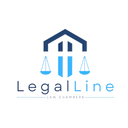
A Guide to Understanding Taxation in South Sudan
- Foreign Investment
Taxation plays a pivotal role in shaping South Sudan’s economic framework, impacting both individuals and businesses operating within the country. A clear understanding of the tax landscape is essential for compliance and financial planning. This guide provides an overview of key taxes in South Sudan, including Personal Income Tax, Business Profit Tax, Sales Tax on Produced Goods, and Excise Duties, with insights into each category.
1. Personal Income Tax
Personal Income Tax in South Sudan applies to both resident and non-resident individuals, though the criteria differ based on residency status.
- Resident Individuals: Taxable on all global income, including income from sources both within and outside of South Sudan.
- Non-Resident Individuals: Only taxable on income sourced from within South Sudan.
Income Brackets and Rates for FY 2023/24:
- 0% on income below SSP 20,000 per month
- 5% on income between SSP 20,001 and SSP 40,000 per month
- 10% on income between SSP 40,001 and SSP 57,000 per month
- 15% on income between SSP 57,001 and SSP 90,000 per month
- 20% on income above SSP 90,000 per month
Certain exemptions apply, including income for diplomatic representatives and employees of international organizations.
2. Business Profit Tax (BPT)
The Business Profit Tax (BPT) is applicable to the taxable profit of businesses and is governed by the Taxation Act, with amendments in 2012 and 2016.
- Tax Rate: A flat rate of 30% applies to businesses of all sizes.
- Allowable Deductions: Businesses can deduct expenses like operational costs, depreciation, and bad debts to calculate taxable profit.
Exemptions include income for NGOs used for public purposes and dividends where tax has already been withheld.
3. Sales Tax on Produced Goods
Sales Tax is levied on the production, importation, and certain services within South Sudan. It applies to goods such as manufactured items and specific service industries.
- Tax Rate: Ranges from 1% to 20%, depending on the category of goods or services.
- Exemptions: Goods and services linked to diplomatic missions or international donors may be exempt under specific agreements.
4. Excise Duties
Excise duties are imposed on both domestic production and importation of excisable goods, including alcohol, tobacco products, air transport services, and telecommunications.
- Assessment: Calculated based on the manufacturer’s selling price or fair market value.
- Exemptions: Certain goods, like aviation fuel, may be exempt under specified conditions.
Filing and Compliance
Each tax has specific filing dates and requirements. Personal Income Tax is typically paid monthly, while Business Profit Tax and excise duties may have quarterly or annual filing dates. Compliance is essential to avoid penalties and to maintain good standing with South Sudan’s National Revenue Authority (NRA).
Conclusion
Navigating South Sudan’s taxation system is crucial for maintaining compliance and optimizing financial planning. Whether you are a business owner or an individual taxpayer, understanding these tax obligations ensures you can plan effectively while adhering to South Sudan’s regulations. For expert guidance, consult with tax professionals or legal advisors to align your tax strategy with local requirements.
Share Insight
Continue Reading from Our Legal Knowledge Center
Explore more insights on similar topics to deepen your understanding and stay informed about Legal Line Law Chambers' efforts and initiatives.

Work Permit in South Sudan: Procedures and Requirements
This blog provides a comprehensive guide for employers on how to easily process work permits for their employees in South Sudan. It outlines the step-by-step application process, including necessary documentation, submission procedures, and payment requirements. The blog also highlights key consider...


Legal Consultants in South Sudan
Discover the essential role of legal consultants in South Sudan, guiding businesses and individuals through the complexities of local laws and regulations.


South Sudan's Oil and Gas Law: Key Regulations and Strategic Framework for Growth
Explore South Sudan's comprehensive legal framework governing its vital oil and gas sector, established to attract investments, ensure transparency, and promote sustainable resource management. This blog delves into key regulations, including the Petroleum Act and Petroleum Revenue Management Act, a...

